By Emily Barske, Business Record Editor
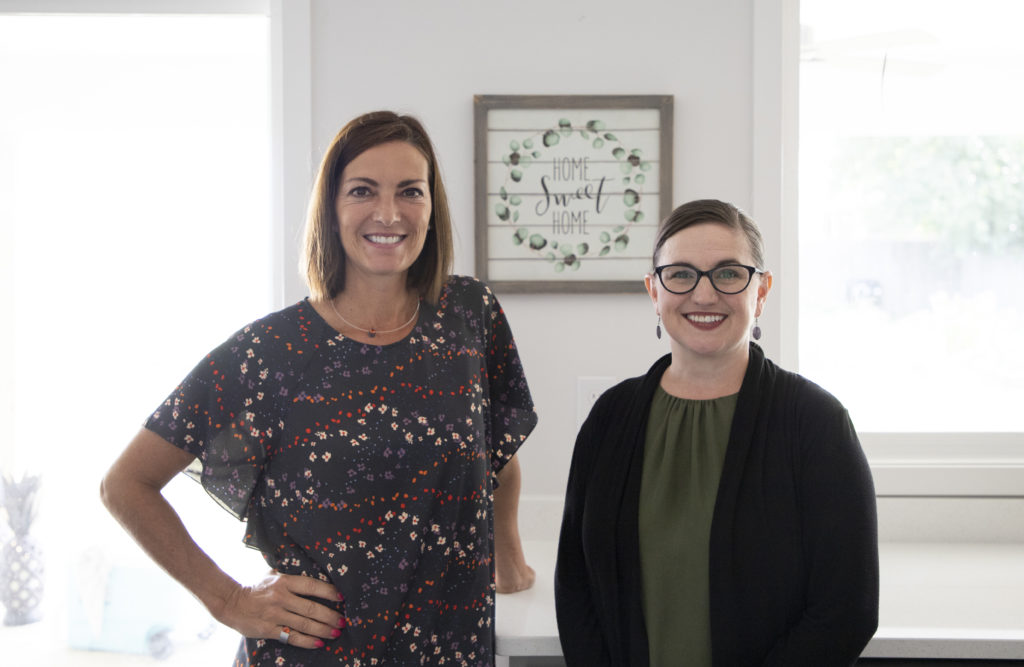
2020 was not a great time to build a home – or to kick off a capital campaign to fund it. As the coronavirus pandemic wreaked havoc on the economy, the prices of building materials soared and nonprofits struggled to find funding in the same ways they used to.
But as Kellie Markey, founder of Dorothy’s House, stood with other onlookers in mid-December of 2019 and watched a 131-year-old home on the organization’s campus get demolished, no one could have known those economic implications were coming in just a few weeks.
The 2019 demolition was the end of an era for the structure to make way for a new home for the organization, which provides a safe place and programming for survivors of human trafficking and sexual exploitation. Much like the resilience the organization tries to instill in survivors, Dorothy’s House had to lean on its ability to adapt in order to move forward with the project and the capital campaign needed to fund it.
“Leading up to [December of 2019], we had lost foundation bricks, we had a chimney that was not repairable, we had very significant issues,” Markey said. “We didn’t want to tear the house down, but it started flooding in the cellar and our mechanicals were in there, and there was no solution to prevent water flow to that cellar, and it also wasn’t serving our needs anymore.
“So we tore it down in December of ’19 with plans of starting our capital campaign in January, which we did. We printed all of our materials and we were ready to go after the holidays. And then in February we had to put it on pause.”
Many institutions that would have been interested in helping the project either didn’t have the means at the start of 2020 or instead directed their funding at food insecurity and housing instability.
But the campaign eventually went on after the intermission, starting back up in October of 2020 with a goal to fund the construction and also end with no mortgage on the house. They received just over $200,000 of in-kind gifts like the roof, kitchen cabinets, flooring, paint and more. They raised $180,000 in funds on top of that.
The build has been ongoing since, and after wrapping up what’s needed for its occupancy certificate from the city of Des Moines, participants will be able to begin staying at the home as soon as possible.
Markey and Aimee McDonald, director of operations, recently gave the Business Record a tour of the new home.
The need for the new house existed not only because the old one was crumbling, but because of what the organization learned about its needs to help serve survivors since it launched in 2016. One thing they came to realize is that survivors who were in their first few months of programming had very different needs from those who have been there a year.
“This is the recovery house, and they will stay here from three to five months, kind of depending on what the needs are – build safety, start to establish some life skills and routine,” McDonald said. If necessary, some participants can apply for an extended period in the recovery house.
The second phase is focused on transitioning and includes four to six months where participants can have more independence – they work, have a cellphone and re-acclimate into an independent living situation within the safety net of Dorothy’s House. The third phase is the Front Porch program, where they move into an off-site apartment with some subsidies from Dorothy’s House and still do some programming.
The new home was specifically designed with equity in mind, from the four bedrooms being nearly identical to the same amount of space in the fridge and pantry for each participant. It’s also ADA-compliant. It includes a library, a large outdoor garden, a workout space and other amenities. The house now has a proper office and break room for staff as well.
The home is set up for the first phase of programming on recovery as it allows the participants to learn life skills like financial literacy, cooking, housekeeping, etc.
Who they serve
As it relates to human trafficking in Iowa, many have heard that Interstates 80 and 35 make the state a hot spot – but that is a fallacy, Markey said. Every state has a major interstate intersection, she pointed out, but the crime is bigger than that and happens in every city and state in the country, including every county in Iowa.
“Part of the dynamic that makes it so easy to conduct this business here is we have a few concentrations of large populations with a lot of little outlying areas that are easy to access, a short time distance away where you can come and go,” Markey said. “But it’s spread out enough that people don’t see the traffic patterns, so you can leave your desk in downtown Des Moines and make it to Indianola or Cumming or to a property in a nearby area, buy somebody for sex over lunch, and then come back to work and nobody knows the difference.”
Survivors sometimes contact the agency directly to find out about the programming, but they’re more often referred to the organization by other services agencies that help survivors of human trafficking and exploitation, but don’t specialize in it like Dorothy’s House does.
Some past participants have been exploited anywhere from one week to as long as 15 years before programming with the organization. Though you can never fully recover from the crime, Dorothy’s House helps teach coping mechanisms.
Markey said they once hosted a Super Bowl party with a past participant, and at halftime the participant went up to bed because she couldn’t recall a Super Bowl weekend where she wasn’t raped the entire time. Her response to triggers was to hide in her closet for three days. Though they could never make that trigger go away, Markey said, they could focus on helping the survivor reduce the time hiding to three hours and eventually three minutes using different trauma coping strategies.
Overcoming trauma is not easy, though.
“Individuals who are recovered from this crime or who find themselves out of this crime aren’t always ready for the rigors of restoration – and don’t always want what you have to offer,” Markey said. “[They might] need to work on some other things – they might need an inpatient treatment program or they might need a greater level of mental health support than we can provide here. And so we oftentimes are diverting people to other resources before they’re ready to come to a place like this.”
Many programs like Dorothy’s House expect people to be at least 30 days sober before starting programming, but that isn’t an expectation of the organization because it would be tough to expect survivors to come out of this crime and also have solved addiction issues, she said.
“It’s really hard work and you apply two years of your life to working on yourself, which few people ever have the privilege to do – and few people ever want to do. It’s a deep dive.”
How you can help
There are few state and federal funding sources that directly apply to the work Dorothy’s House does, so the organization relies mainly on community support. Kellie Markey is currently still working on raising an additional $30,000 for the project. To learn more about Dorothy’s House, visit dorothyshouse.org/. Contact Markey at kelliem@dorothyshouse.org or 515-423-8353.
Editor’s note: The location of the property and campus were intentionally left out to protect the survivors.
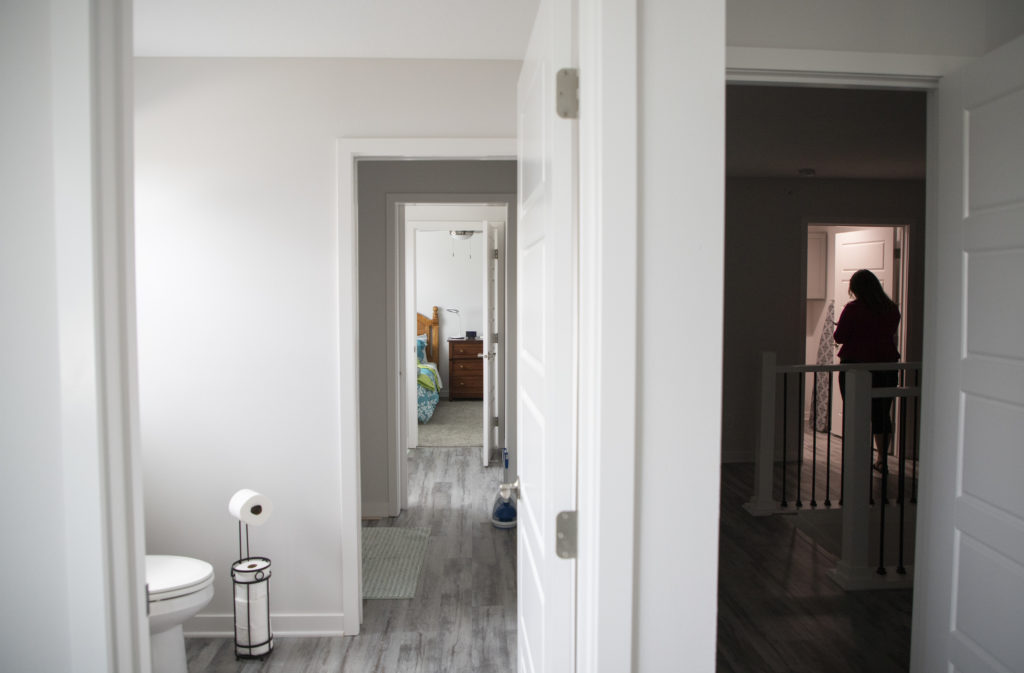
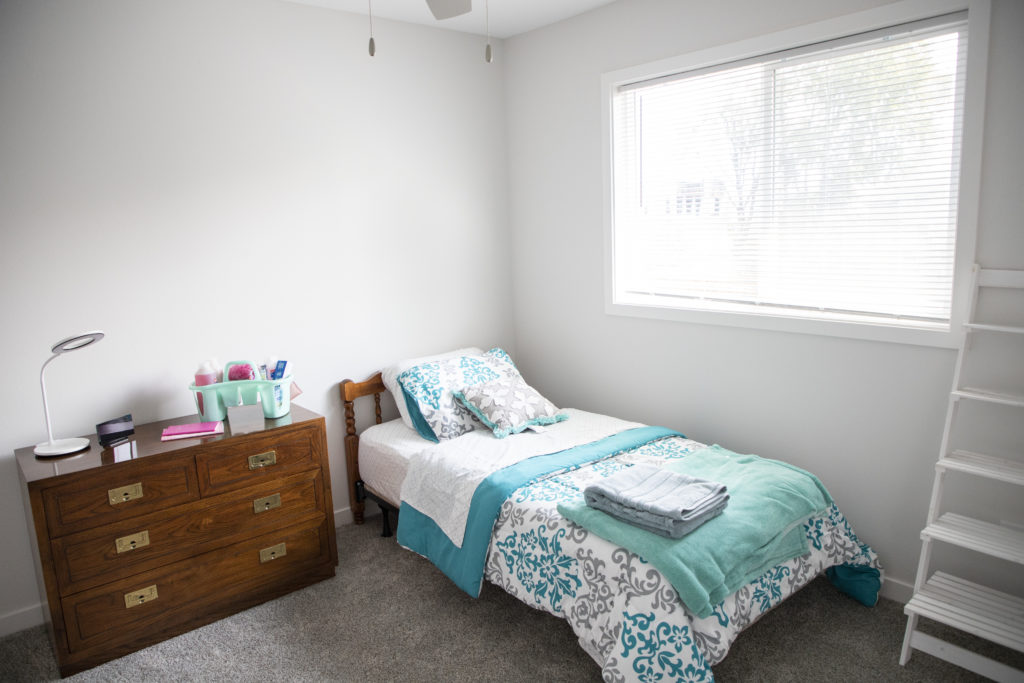
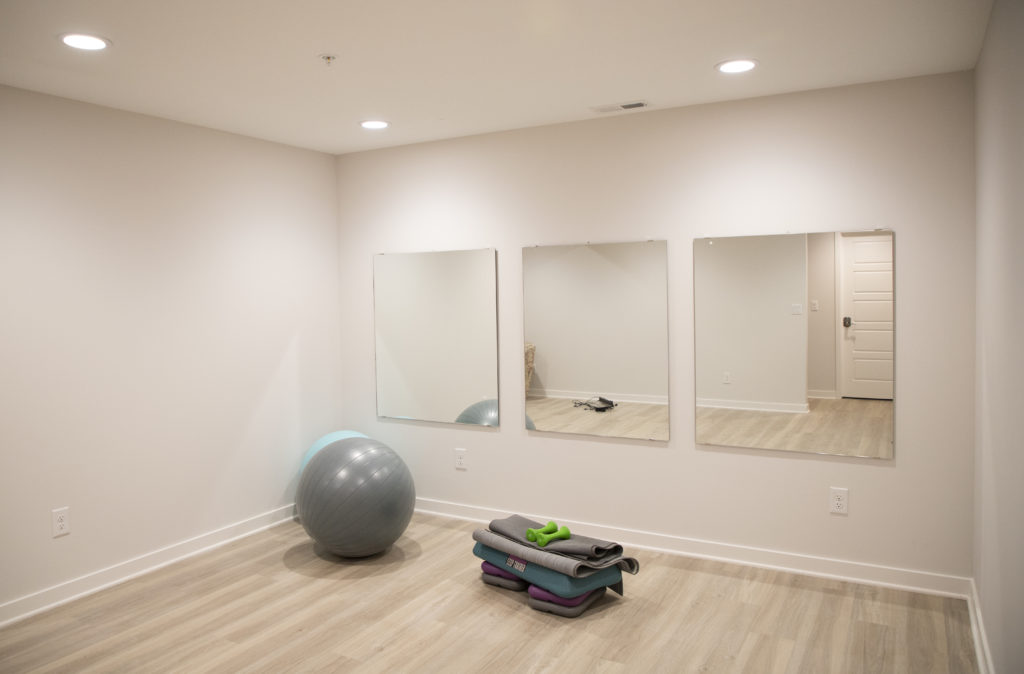
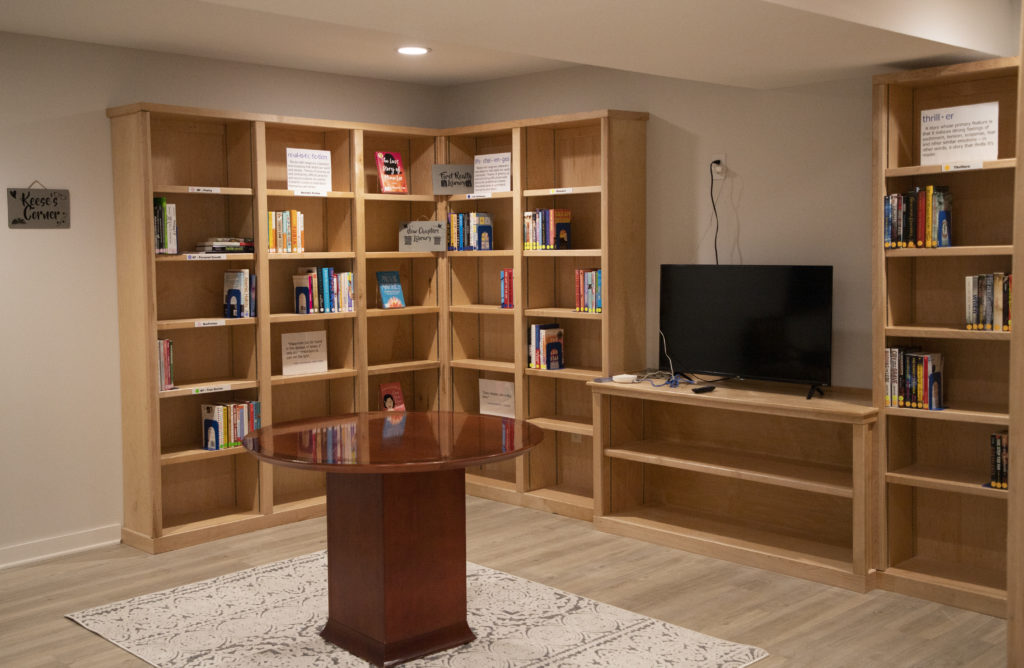
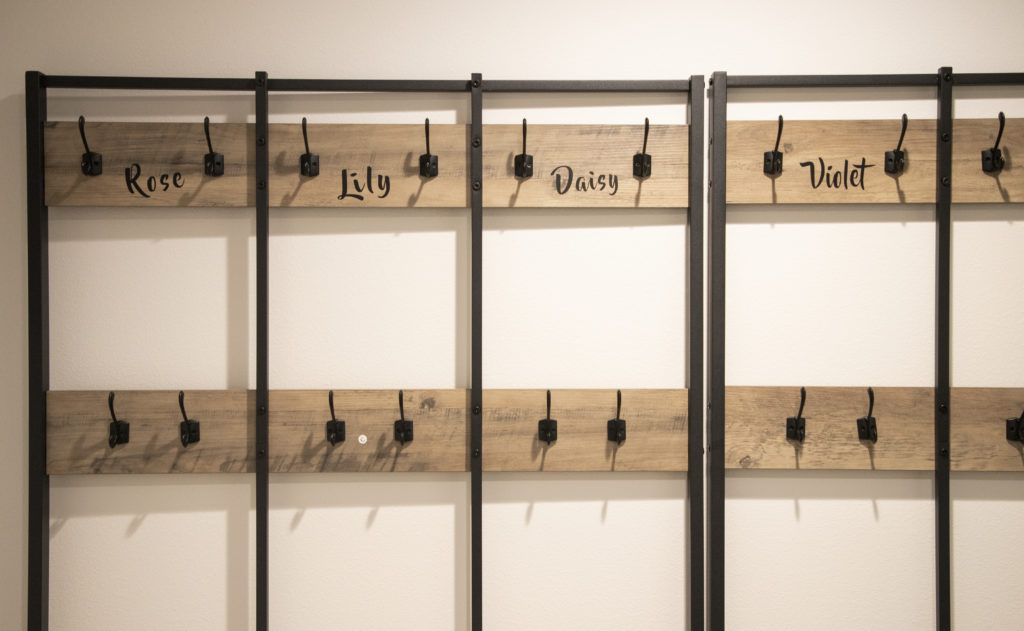
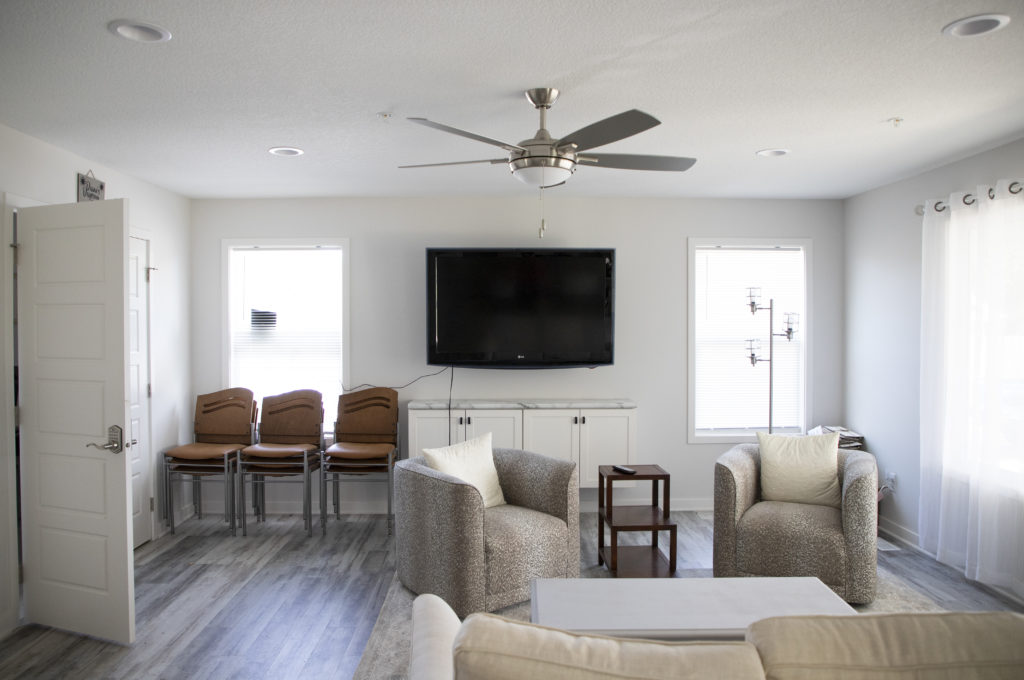
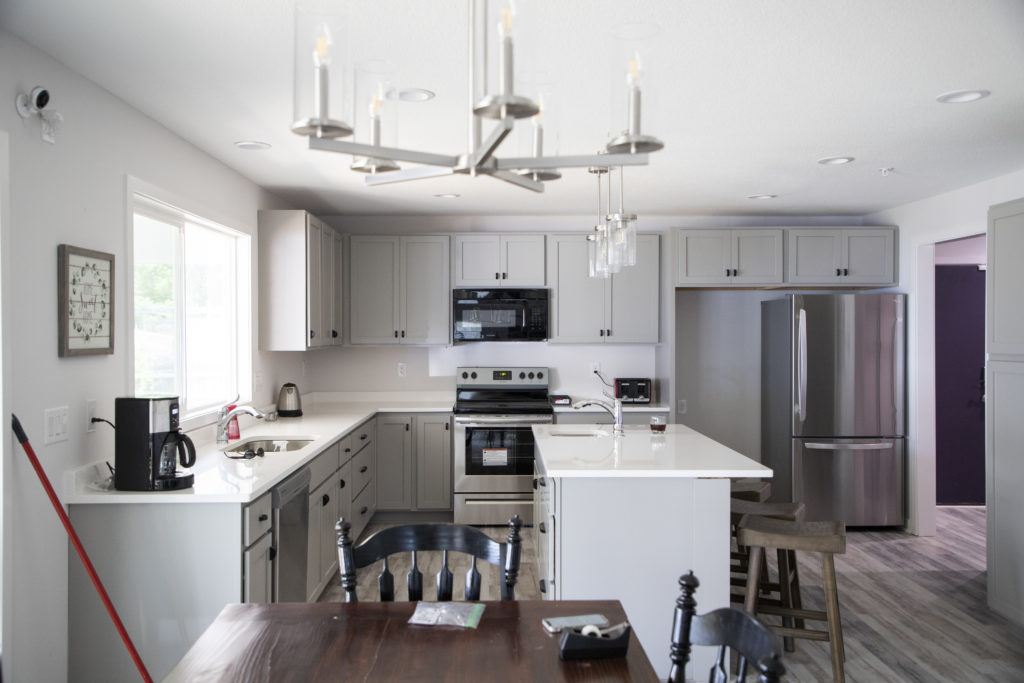
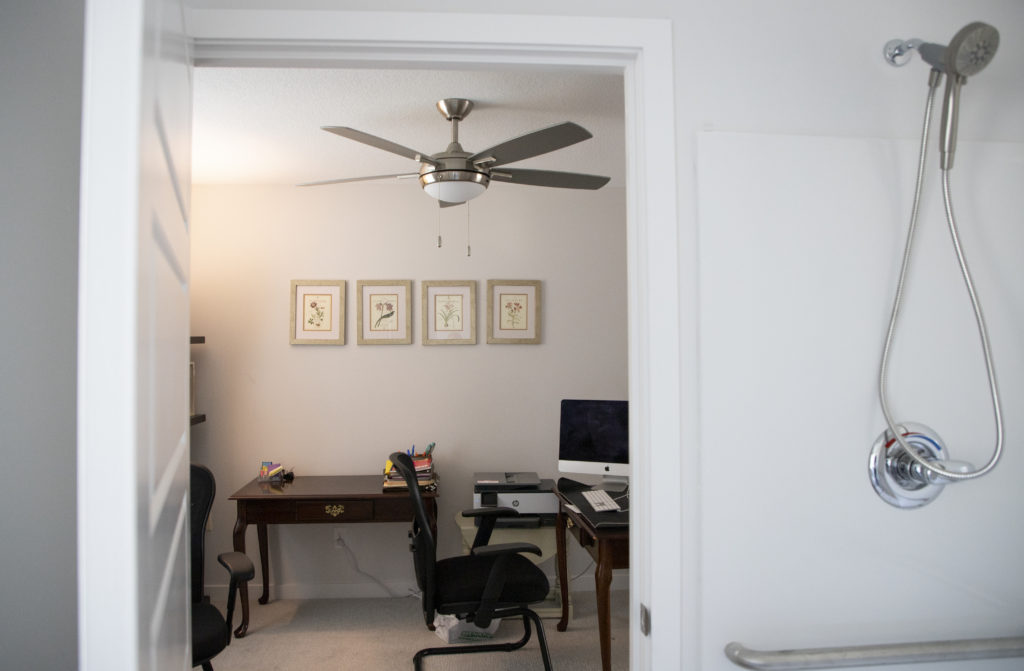
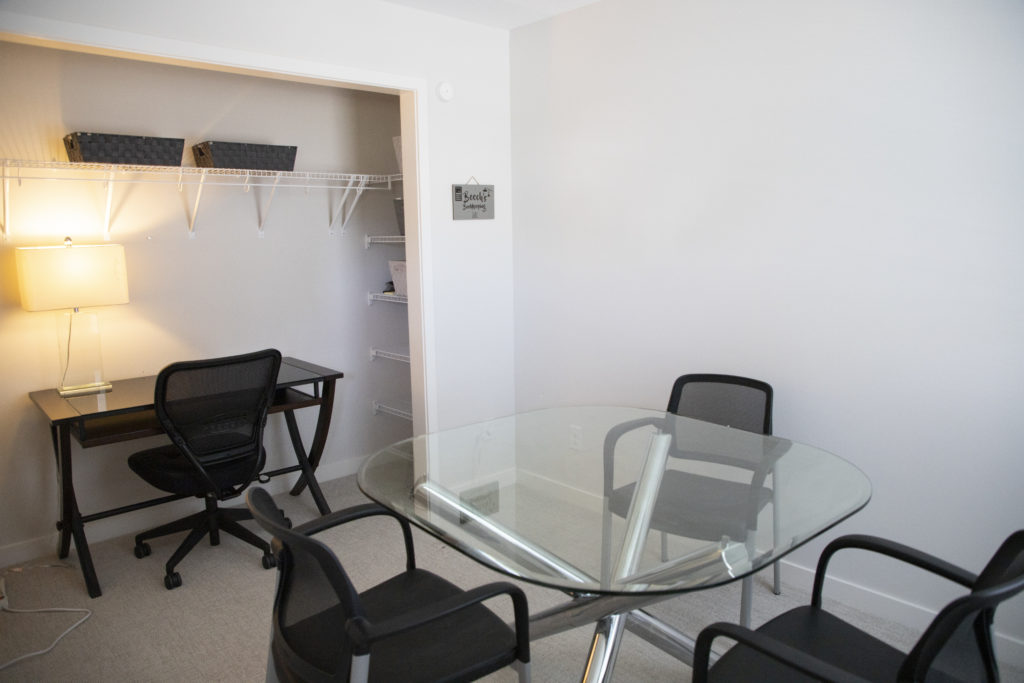


1 Comment
Judy Guild · November 6, 2021 at 3:48 pm
I belong to P.E.O., Chapter OB. We are an organization that raises money to further education for women with grants and scholarships. Kellie spoke to our group several years ago. I would like to schedule a time for Kellie to speak to our group once again with an update on Dorothy’s House. I am in the process of putting together our yearbook for 2022-2023. It will go to print in March of 2022 and be given to members in May, 2022. We have openings for a speaker in August, September, October or November of 2022. Please contact me at (515)201-3974 or guildja15@gmail.com.
Comments are closed.